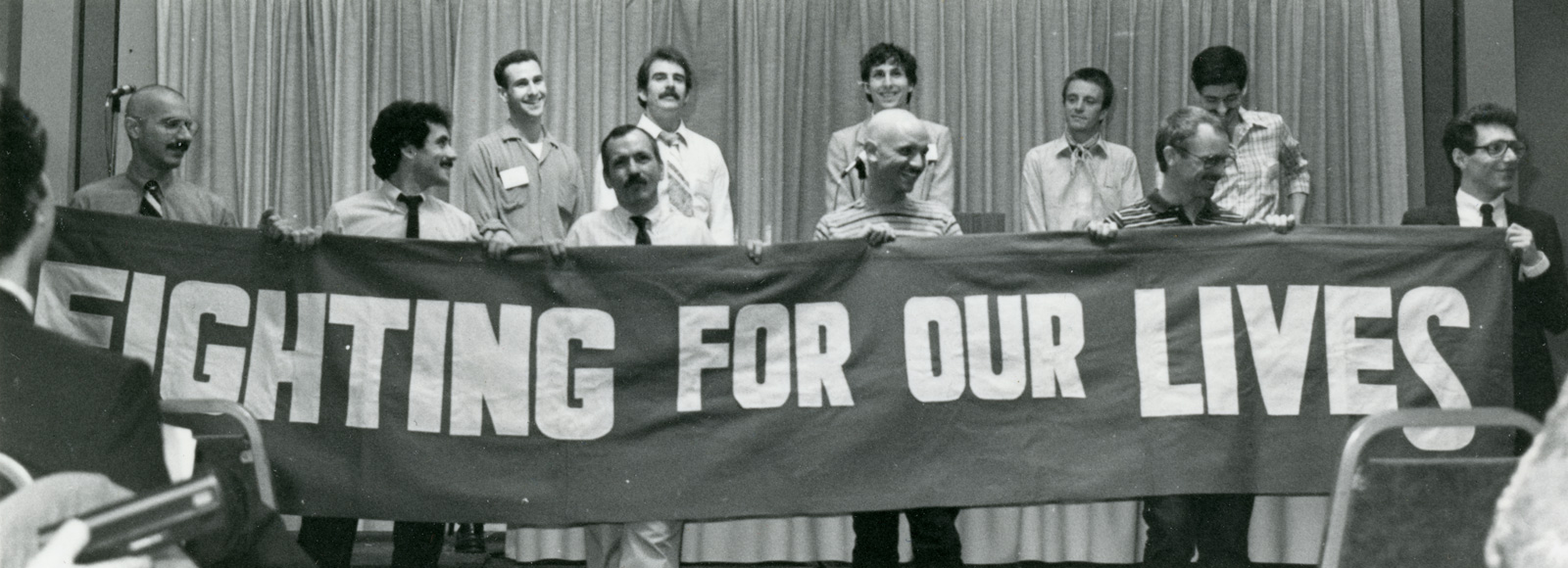
The so-called Magna Carta of AIDS activism was not unveiled to the world in New York or San Francisco, but in Denver.
Activists flew from New York to Colorado to attend—more so crash—the National Lesbian and Gay Health conference in June 1983. Even while AIDS reached epidemic, it was not the focus of the event. The hotel even scrubbed all mention of the words "AIDS" from signs.
So when Richard Berkowitz and ten other men took the floor and unfurled a banner reading, "Fighting For Our Lives," it was truly an act of rebellion. This was the stage for the reading of the Denver Principles, which open with:
"We condemn attempts to label us as 'victims,' a term which implies defeat, and we are only occasionally 'patients,' a term which implies passivity, helplessness, and dependence upon the care of others. We are 'People With AIDS.'"
It's still a powerful declaration today, but it was unheard of when it was first spoken 35 years ago. The opening lines to the Denver Principles shook the healthcare world, changing not only how those people with AIDS were treated by medical professionals, but everyone else as well.
But before Berkowitz and his friends could help change the healthcare world, they had to accept what was happening to themselves and their communities first. Berkowitz said he tried to turn a blind eye to the epidemic, and only went to a doctor after a close friend died from AIDS.
"I remember being so terrified that I would try to keep denying that something terrible was unfolding, that something terrible in the gay community was starting to unravel," he said.
The basis of the Denver Principles were the feminist critiques of healthcare, how the medical industry can "marginalize and sometimes even brutalize" minorities, Berkowitz said.
The same year of the conference, Berkowitz and fellow Denver Principles writer Michael Callen had just written "How To Have Sex In An Epidemic," the first guidebook of its kind for having safe sex during the AIDS epidemic.
Berkowitz still has immense pride in his work with the Denver Principles and his writings with Callen.
"It was the invention of AIDS activism, and it inspired other healthcare movements to look at what we had created with this document, and to change and alter and focus the way their actions and their activism would go," he said.
But their work was not without sacrifice and loss, especially so early on in the AIDS epidemic.
"Tragically most of the gay men who were at the Denver conference were gone two years later," Berkowitz said.
Of the 11 men in the "Fighting For Our Lives" photo, only Berkowitz is still alive.









